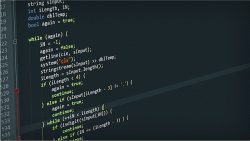Embedded C Programming: Best Practices, Optimization Techniques, and Tools

Embedded C programming is a specialized language used for programming microcontrollers and other embedded systems. Unlike traditional C programming, which is used for general-purpose computing, embedded C programming is designed specifically for use in resource-constrained environments. This means that embedded C programmers need to be mindful of the limited processing power and memory available on these systems and use techniques that optimize code performance and reduce memory usage. The importance of using an efficient programming language for embedded systems cannot be overstated. With embedded systems being used in many applications, including medical devices, automotive systems, and IoT devices, it is crucial to use a programming language that can provide reliable and efficient performance. Embedded C programming is a popular choice for many embedded systems due to its speed, low memory footprint, and support for hardware-level programming. By using embedded C programming, developers can create systems that are responsive, reliable, and efficient, even when running on limited hardware resources.

